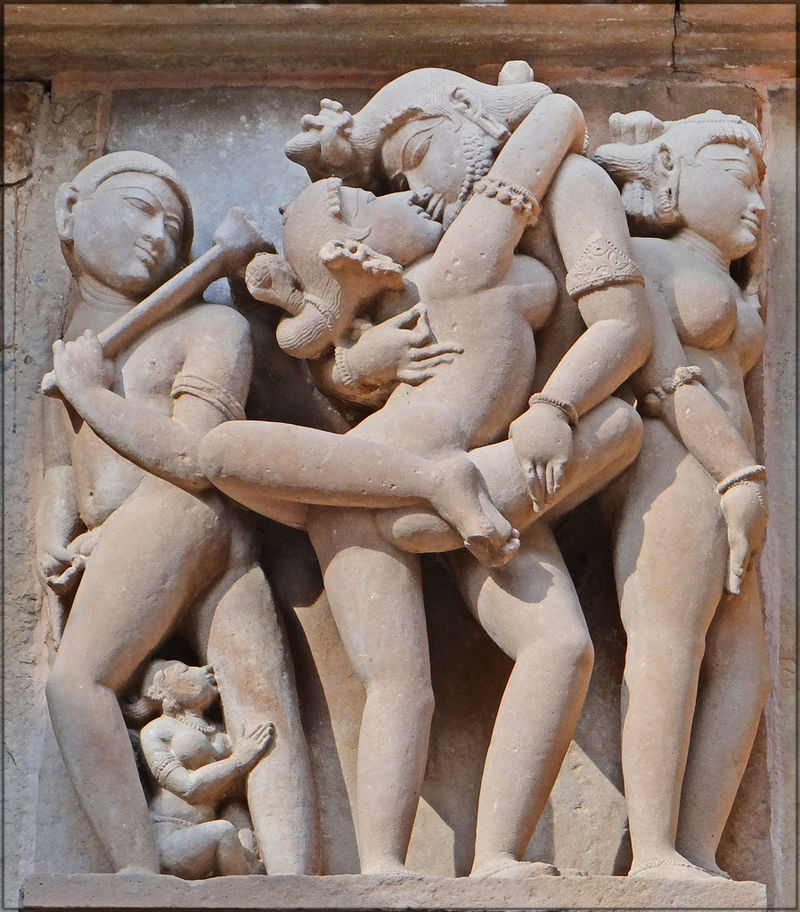What you’ll learn to do: examine the characteristics, etiology, and treatments of sexual deviations

What are sexual deviations? As we have discussed, human sexuality spans a range of behaviors, and varies from culture to culture, thus making it hard to define what type of sexual expression is acceptable. From a clinical perspective, there has been some effort to define sexual deviation under the umbrella of the sexual paraphilias. The term paraphilia comes from the Greek παρά (para) “beside” and φιλία (-philia) “friendship, love” and was first coined by Friedrich Salomon Krauss, a Croatian Austrian Jewish sexologist in 1903, and used with some regularity by Wilhelm Stekel in the 1920s. The term is used to describe atypical sexual interests, and there remains debate regarding technical accuracy and perceptions of stigma. “Paraphilia” indicates that certain behaviors are somehow deviant when in fact they may be just at different ends of the spectrum[1].
Homosexuality used to be considered a paraphilia, but this is no longer the case (although it some countries it is still considered abnormal behavior). Sexologist John Money popularized the term paraphilia as a non-pejorative designation for unusual sexual interests. Money described paraphilia as “a sexuoerotic embellishment of, or alternative to the official, ideological norm.” Despite efforts by Money, the term paraphilia remains pejorative in most circumstances. For clinical purposes, the term paraphilia is the experience of intense sexual arousal to atypical objects, situations, fantasies, behaviors, or individuals.
In this section, you will become familiar with the sexual paraphilias, previously known as sexual perversions and sexual deviations. Although not innately pathological, a paraphilic disorder can evolve if paraphilia invokes harm, distress, or functional impairment on the lives of the affected individual or others. A total of eight paraphilias are listed in the DSM-5 and include pedophilia, exhibitionism, voyeurism, sexual sadism, sexual masochism, frotteurism, fetishism, and transvestic fetishism.
Candela Citations
- Modification, adaptation, and original content. Authored by: Sonja Ann Miller for Lumen Learning. Provided by: Lumen Learning. License: CC BY-SA: Attribution-ShareAlike
- Paraphilia. Provided by: Wikipedia. Located at: https://simple.wikipedia.org/wiki/Paraphiliau00a0%20. License: CC BY-SA: Attribution-ShareAlike
- Le Temple de Lakshmana (Khajuru00e2ho). Authored by: Jean-Pierre Dalbu00e9ra. Provided by: Flickr. Located at: https://en.wikipedia.org/wiki/Khajuraho_Group_of_Monuments#/media/File:2_Erotic_Kama_statues_of_Khajuraho_Hindu_Temple_de_Lakshmana_Khajur%C3%A2ho_India_2013.jpg. License: CC BY: Attribution
- Paraphilia. Authored by: Kristy A. Fisher; Raman Marwaha. Provided by: StatPearls. Located at: https://www.ncbi.nlm.nih.gov/books/NBK554425/. License: CC BY: Attribution
- Moser C. & Kleinplatz P.J. (2005). "DSM-IV-TR and the Paraphilias: An argument for removal". Journal of Psychology and Human Sexuality, 17(3/4), 91–109. ↵
